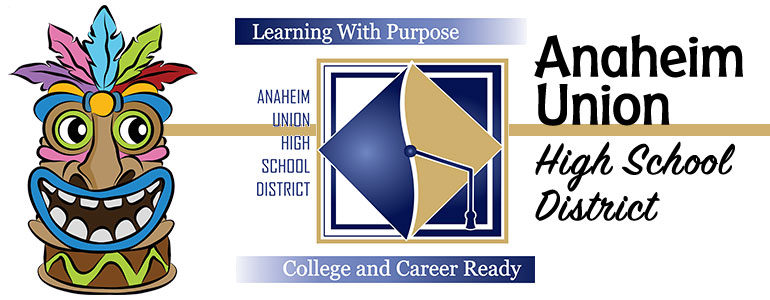
The Magnolia Agriscience Community Center (MACC) is transforming 2.5 acres of undeveloped land on Magnolia High School’s campus into a school-based community farm aimed to alleviate local food insecurity. It will serve as a hub for nutrition, providing much-needed fresh produce for the surrounding community, and expand learning and career-training opportunities for students and community members on health, nutrition, and regenerative/sustainable agriculture practices. The ribbon cutting ceremony to launch the MACC will take place on Tuesday, May 10, 2022 from 4:00-5:30 on the Magnolia High School campus.
AUHSD Superintendent Michael Matsuda describes the MACC as a transformative project that may not only change the landscape in Anaheim, but across the nation: “it is the first of its kind in the nation designed to be an urban agriscience science laboratory–in effect, an urban farm, that is going to transform the community from a food desert to a food and healthcare oasis.” This is a District-wide project, Superintendent Matsuda explains, that “involves 5-6 schools in year 1 and teachers across the curriculum from science, to English, to health, to math, and have students learn about food deserts through data analytics and census data and comparing it over time in terms of childhood obesity, diabetes, and heart disease.”
With the data they find, students will help fill those nutritional gaps by growing fruits and vegetables, some of which will go to District cafeterias and some of which can be taken home by students or shared with the community. In addition, the District plans to get families and the community involved by offering cooking classes, giving out student-created home gardening kits, and offering boxes of fresh produce picked weekly that includes recipe cards created by Magnolia students.
The Samueli Foundation has provided a $250,000 grant award to support the MACC, which aligns to the Foundation’s mission to create societal value by investing in innovative, entrepreneurial, and sustainable ideas. Lindsey Spindle, President of the Samueli Family Philanthropies believes the MACC also aligns with the Foundation’s vision to be a resource for organizations that empower people to more fully realize their potential: “the MACC will address health equity through a number of social determinants of health – science, technology, engineering and mathematics (STEM) education, food insecurity, and community driven change in Anaheim. Its impact will transform student learning and the whole health of the schools and their surrounding communities in the months to come.”
Dr. Sabina Giakoumis, Magnolia Teacher and Project Coordinator for the MACC, stated that “while the school already has a 3,000-square-foot garden, Anaheim Union High School District officials saw an opportunity to help students learn broader lessons and share them with the community.”
At a campus where 89% of students qualify for free or reduced price lunches, Dr. Giakoumis thinks the MACC will make the school day better too, by producing fresh fruits and vegetables that can be turned into tastier meals in the cafeteria. AUHSD has committed to purchasing produce from the MACC that will go into salad bars at Dale Junior High School, Magnolia High School, South Junior High School and Katella High School for the 2022-2023 school year. Each of these schools will have a minimum of 400 students attending the MACC learning labs during the Spring of 2022. The MACC will have different varieties of lettuce, cucumbers, carrots, snap peas and tomatoes grown on the farm served at these school cafeterias with signage so students know their food came from the MACC.
The 2.5-acre farm on campus will have rows of fruit trees, berry patches, an array of vegetables and a greenhouse. In addition, through a partnership between UCI Science Project and Gear Up, college students are teaching curriculum written by UC Irvine professors to AUHSD students. These lessons focus on earth’s changing climate, regenerative agriculture, and conservation. Students from South Junior High School, Dale Junior High School, Katella High School, and Magnolia High School are experiencing these labs and the plan is to have over 2500 students attend the MACC space over 6 weeks.
Dr. Giakoumis plans to include those voices by giving students and parents seats on the farm’s decision-making board. She hopes students will use what they learn to take civic action to help make their community a healthier place: “Our agriculture site is not the solution; we see it as an asset – so how can you use this space to create a solution?”
Kenyon McCall, a junior at Magnolia High School, said he’s hoping the produce they will grow can be shared with area families, many of whom have lower incomes and may not have easy access to fresh, nutritional foods. McCall said he’s already learned the importance of a patch of dirt, some seeds and tools, and a common purpose: “It helps bring us together as a community,” he said. “It really builds character because when you put yourself into doing hard work, it really shows.”
